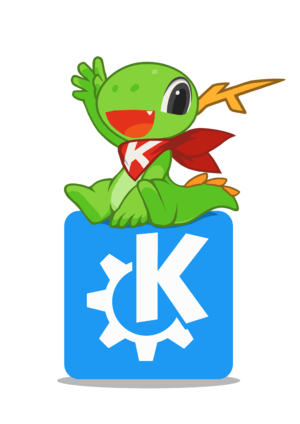Incubator: Difference between revisions
No edit summary |
No edit summary |
||
| Line 18: | Line 18: | ||
- [ ] Continuity agreement must be in place with KDE e.V. for domains and trademarks if the authors disappear | - [ ] Continuity agreement must be in place with KDE e.V. for domains and trademarks if the authors disappear | ||
- [ ] Recommended to attend [[Akademy]] | - [ ] Recommended to attend [[Akademy]] | ||
- [ ] Website available | |||
- [ ] Mailing list and chat rooms | |||
- [ ] Code in KDE Invent | |||
- [ ] bugs.kde.org Product created | |||
- [ ] Passing CI job for reuse linting | - [ ] Passing CI job for reuse linting | ||
</nowiki>}} | </nowiki>}} | ||
Revision as of 15:10, 3 July 2023

Welcome to the home page of the KDE Incubator! There are many benefits to becoming a KDE project: https://manifesto.kde.org/benefits/
⇝ List of currently incubated projects.
⇝ List of currently incubated projects
Requirements
- [ ] Incubation Sponsor is.. - [ ] Compliance with the [http://manifesto.kde.org KDE Manifesto] - [ ] Governance similar to the other KDE projects - [ ] Clear product vision - [ ] Healthy team (healthy proportion of volunteers, inclusive towards new contributors, ideally more than one developer) - [ ] Uses English for code and communication - [ ] Continuity agreement must be in place with KDE e.V. for domains and trademarks if the authors disappear - [ ] Recommended to attend [[Akademy]] - [ ] Website available - [ ] Mailing list and chat rooms - [ ] Code in KDE Invent - [ ] bugs.kde.org Product created - [ ] Passing CI job for reuse linting
Example CI job at e.g. plasma-disks CI and plasma-disks reuse jobs
Process
Candidate
Create a project on invent.kde.org and import the existing code. This can be in a personal space on invent. You might need to ask sysadmin to import the code.
Create an issue on the invent project with a label of "Incubation Request". Copy and paste the checklist above into the issue and include background on the project: a description of the project to be incubated, include a list of the people committing to the project, and have a plan to be in compliance with the KDE manifesto. For example, it must be hosted on KDE infrastructure (or have an action plan that ensures continuity) (e.g. not on Github).
Send an email to [email protected] and other relevant lists requesting a sponsor pointing to the issue and including the same background description.
Incubating
During this phase, the sponsor actively works toward getting the project set up by doing the following:
- Make sure the project developers have developer accounts
- Contact sysadmin to get git repos (in the playground area) set up for the developers
- Keep on top of the process to make sure it's going in the right direction and not getting stalled
During this phase, the project cannot yet use the KDE brand or have a top level website on kde.org. If project becomes stalled or does not conform to the manifesto, it gets archived (see below).
Active
During the Active phase, the project enters "KDEReview" and follows the process from there (see also Application Lifecycle and KDEReview. The project team is assumed and expected to behave like other KDE teams and respect the KDE manifesto.
Stalled & Archived
A project is considered stalled when for one year, there is no release, no commits, and no mailing-list activity. Current maintainers are contacted to check what's happening. If there is no activity or no reply from existing maintainers, after a month then a call to new maintainers is done. If a new maintainer shows up he or she gets a six month trial. If after a month no new maintainer showed up, the project gets archived.
When a project gets archived, the source repo gets closed, the mailing list disabled, and only last download is available. If someone wants to pick it up, it goes back to the candidate phase.
Notes
Here are notes which led to the current process.
